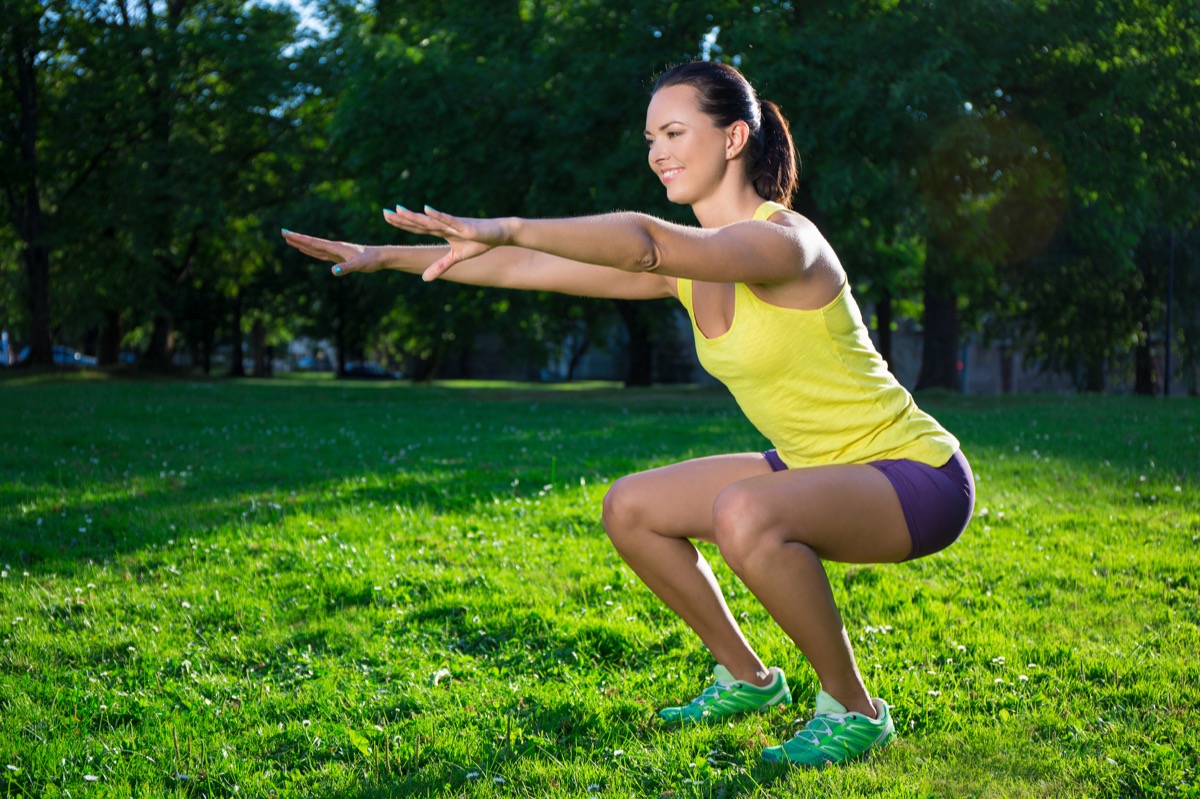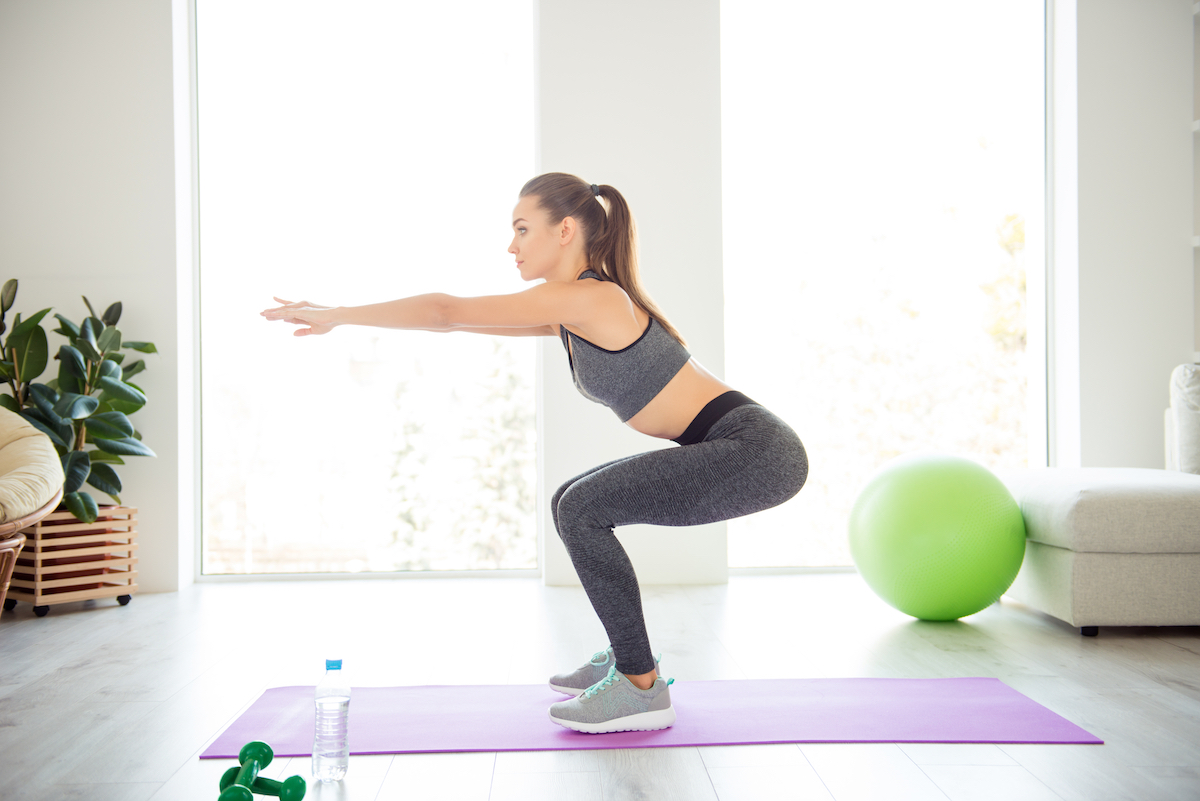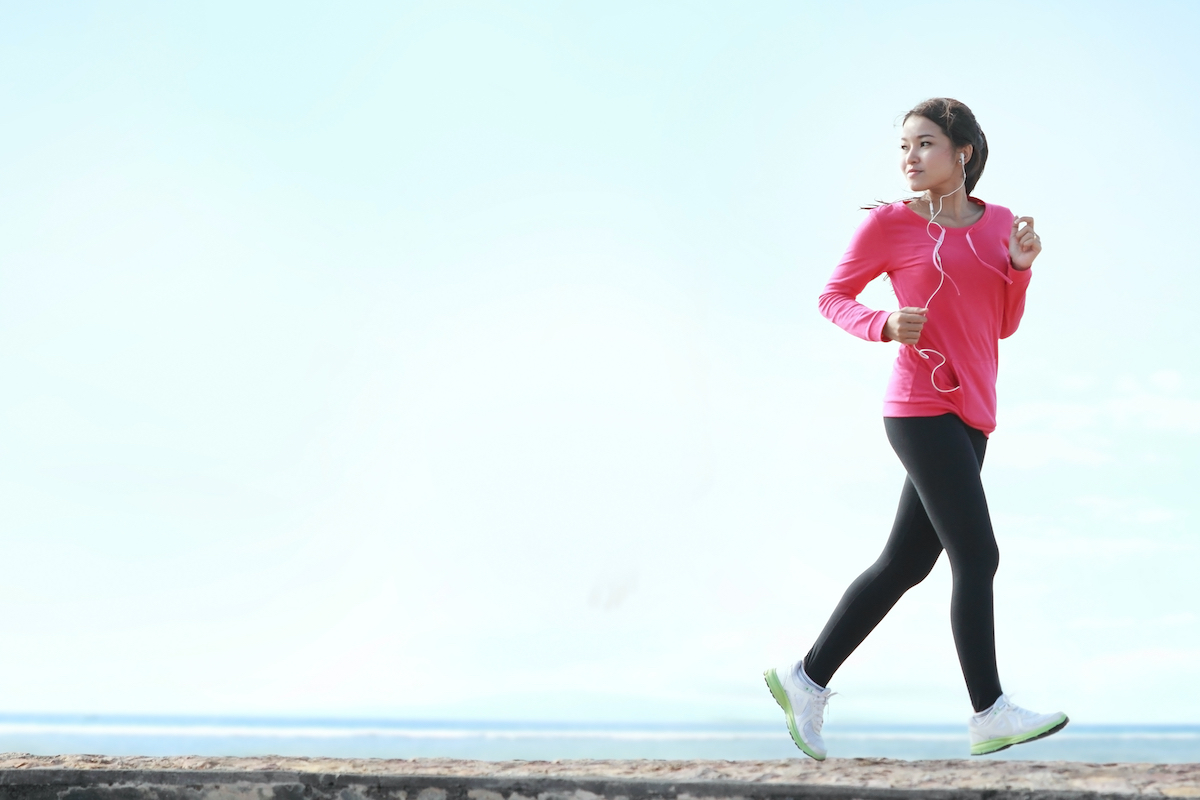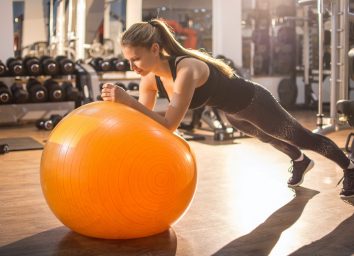Science-Backed Fitness Tricks That Add Years to Your Life

Sure, exercise does wonders for your appearance, your heart, your muscles, your energy levels, and your mental wellbeing, but it's also an essential ingredient for living long and healthy life. After all, you probably needn't consult a doctor to know that choosing the gym over the couch is always the healthier option. That being said, there are a number of specific fitness elements you can incorporate into your exercise regimen to help promote increased longevity. Curious to know what they are? Keep reading to learn more about the secret fitness tricks that can add years to your life. And if dropping a few pounds is your goal, see here to learn The Secret Trick for Walking to Get Lean, Says New Study.
Be Social When You Sweat

Research published in Mayo Clinic Proceedings used data on 8,500 generally healthy Danish adults, whose health outcomes had been tracked for a period of 25 years, to investigate the relationship between team sports and longevity. While people who reported "health club activities," or just going to the gym alone, as their main source of exercise added an average of 1.5 years to their lifespan, while tennis players added an average of 9.7 years. Meanwhile, badminton players added 6.2 years, soccer players added 4.7 years, cyclers added 3.7 years, swimmers added 3.4 years, and joggers added 3.2 years.
Why does tennis foster such a big longevity increase? "It's intensely interactive," explains study author James O'Keefe, MD, a cardiologist at Saint Luke's Mid America Heart Institute. "At every point you're talking. It's just a very natural way to emotionally bond with people, besides getting your exercise." And for some great fitness news you can use, read about the surprising Side Effect of Lifting Weights Just 2 Days Per Week.
Always Add Squats to Your Workouts

Squatting comes easier to some than others, but everyone should be incorporating some squats into their exercise routine. Everyone knows that squats strengthen the legs and buttocks, but squatting has also been shown to improve posture, help fight dementia, and increase bone strength.
While all of that certainly helps promote a longer life in a roundabout way, consider the findings of this study published in the European Journal of Preventive Cardiology. Researchers found that older adults (ages 51-80) who were able to pick themselves up from a squatting position without the use of their hands were much less likely to pass away over the next six years in comparison to their similarly aged peers who couldn't pick themselves up.
"It is well known that aerobic fitness is strongly related to survival, but our study also shows that maintaining high levels of body flexibility, muscle strength, power-to-body weight ratio and coordination are not only good for performing daily activities, but have a favorable influence on life expectancy," says Claudio Gil Araújo, MD, the study's lead researcher.
"The correct position for a resting squat sees you crouching down, knees bent, bottom almost on the floor, with heels flat," Tim Allardyce, a physiotherapist at Surrey Physio in Mitcham, UK, told The Daily Mail.
Make Sure The Intensity Is There

There's nothing wrong with taking it easy during a workout—you should always be listening to your body, of course—but be sure to ramp up the intensity during your exercises when you can. Research published in JAMA Internal Medicine concludes that adding 150 weekly minutes of vigorous exercise to one's workout regimen may extend lifespan.
Over 400,000 people were tracked for six years. Those who reported a higher proportion of vigorous physical activity in reference to overall time spent working out were at a much lower risk of all-cause early death.
To be clear, these findings don't advise that everyone go out and push themselves to the brink of exhaustion every day. Moderation is key. "In the right doses, vigorous activity is a great thing. It challenges the cardiovascular and musculoskeletal systems of the body to a greater extent than moderate activity," Carol Mack, D.P.T., C.S.C.S. told Runner's World.
If You Walk, Walk Briskly

Countless research projects have shown that brisk or more fast-paced walkers tend to live longer than those who habitually mosey around. This study of 450,000 people published in Mayo Clinic Proceedings reports that faster walkers have better odds of living longer than slower workers—regardless of their body-mass index (BMI). Importantly, researchers defined a "brisk walking pace" as at least 3 miles per hour (or 100 steps per minute).
On average, slow female walkers lived to about 72 years-old, while faster female walkers lived to the age of 87. Men who walked briskly lived to roughly 86 years-old, while slow male walkers had a lifespan of 65 years.
"Our findings could help clarify the relative importance of physical fitness compared to body weight on life expectancy of individuals. In other words, the findings suggest that perhaps physical fitness is a better indicator of life expectancy than body mass index (BMI), and that encouraging the population to engage in brisk walking may add years to their lives," says lead study author Tom Yates, Ph.D., MSc, BSc, professor of physical activity, sedentary behavior and health at the University of Leicester. And if you love to walk for exercise, make sure you're aware of The Secret Cult Walking Shoe That Walkers Everywhere Are Totally Obsessed With.
Walk at Least 4,500 Steps Every Day

It isn't just the pace of walking that influences longevity, but the amount, as well. A recent study from the American Heart Association tracked a group of nearly 17,000 older women for close to a decade. In comparison to women taking no daily steps at all, each initial increase of 1,000 daily steps resulted in a 28% decrease in death during the follow-up period. Importantly, this effect held up regardless of whether or not the women got in all their steps in one session or simply walked periodically throughout the day.
Moreover, compared to the least active studied women, participants walking 4,500 steps per day had a significantly lower risk of death. "Our current results indicate that this finding holds even for women who did not engage in any uninterrupted bouts of walking. Taking 2,000 or more additional steps during bouts was associated with further benefits for longevity," explains lead study author Christopher C. Moore, M.S., a Ph.D. student in epidemiology at the University of North Carolina at Chapel Hill. And for more reasons to hit those 4,500 steps every day, see here for What Walking for Just 20 Minutes Does to Your Body, According to Science.








